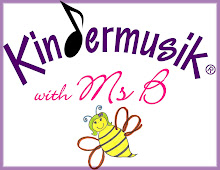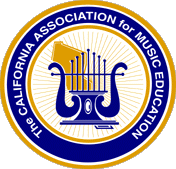Everyone has an opinion (sometimes a very vocal opinion!) on what the best school setting is. Public school, private school, home-school, and charter school all have advantages and disadvantages. There is no BEST school, only what's best for YOUR child. So what are some of these advantages and disadvantages?
Here are the advantages/disadvantages as listed in Vicki Caruana's "Giving Your Child the Excellence Edge".
PUBLIC SCHOOL
Advantages:
1. Public schools are good at reaching out and helping the below-average student.
2. Public schools are driven by common standards and goals.
3. Public schools are free. (Big determining factor IMO)
4. Public schools offer students a variety of social experiences based upon diverse populations.
Disadvantages:
1. Public schools are overcrowded.
2. Public schools often lack funds.
3. Public schools do not effectively address the needs of gifted students. (Not certain I agree with this one)
4. Public schools have more saftey concerns than the others.
5. Public schools can be more "forward thinking" than many parents might prefer.
6. As is common in politics, "reform" can often mean a previously failed approach repackaged under a new name.
PRIVATE SCHOOLS
Advantages:
1. Private schools are often church-affiliated and may support your desire to impart faith in your child's education. (Depending on your beliefs this could be an advantage or a disadvantage)
2. Private schools typically have a higher level of parental involvement.
3. A community atmosphere can encourage greater solidarity and discipline among students.
4. Accelerated curricula for gifted students is usually offered.
5. Although some private schools can be over-crowded, they generally have a smaller class size.
Disadvantages:
1. Although private schools must undergo an accreditation process, some schools and teachers have not earned accreditation.
2. Private schools that have earned accreditation will be more expensive.
3. Problem students sent from public schools may derail opportunities for creativity and classroom innovation.
4. Parents must often transport their own children to school.
5. If a private school is church-affiliated, it may support a denomination with differing doctrinal views from the parents.
CHARTER/MAGNET SCHOOLS
Advantages:
1. Because they are publicly funded, there is no tuition cost.
2. They typically offer smaller class size.
3. They may target a specific need of your child.
4. They allow for greater parental input.
5. Due to high parent involvement and visibility, they may have fewer disciplinary problems and safety concerns.
Disadvantages:
1. They may not be conveniently located, and the parent is usually responsible for transportation.
2. Waiting lists can be very long.
3. With such a high level of parental involvement, disagreements can sometimes disrupt programs.
HOME-SCHOOLING
Advantages:
1. Homeschooling best meets the individual learning needs of children. (This depends on the parents, of course)
2. Home-schooling can create or strengthen the family bond.
3. Parents can set their own schedule and choose their own curricula.
Disadvantegs:
1. Parental burnout can frequently occur in the absense of a strong support system.
2. The financial sacrifice of changing to a one-income family is too great for many.
3. The choice to home-school is still criticized and questioned by many.
When choosing a school for a child you need to know yourself and your child.
- How much involvement can you afford?
- What is your child's learning style?
- Does your child need special attention? Ahead? Behind?
- In what kind of environment will my child succeed?
- Do you desire to have input on your child's curriculum?
- Is diversity of race and social status important to you?
- What are my options if I disagree with something at the school?
For more questions about choosing a school for your child be certain to see the Department of Education's website.











We started homeschooling several years ago, and absolutely love it. It's honestly the best decision we've ever made. Now, I can keep a closer eye on my kids, and dedicate the time they need to learn properly. For us, homeschooling just works.
ReplyDeleteGreat article!
We also homeschool and can't imagine how different our lives would be if my husband and I had made other choices. Homeschooling has allowed us to travel with his job while exposing the kids (and us) to many amazing learning opportunities that we never had at home. I love homeschooling!:)
ReplyDeleteIt's new for us, but homeschooling has proved to be both rewarding & challenging. But, as a mom, I know that I am the one responsible & best equipped to follow my children's cues. I can't say there aren't uphill days, but all in all it can be most beneficial for us all--it inspires me to continue learning & exploring too!
ReplyDeletehttp://turtlestostart.blogspot.com
This year was the first year of homeschooling with my 12 yr old daughter.
ReplyDeleteI love having her here and knowing she's not involved in all the "junk" going on in PS.
She however is being pressured by PS friends to come back. If I let her go back, I don't expect it will last long!
If anyone wants to see some of the stuff we do, look for the homeschool page on my blog.
Wow, lots of home-schoolers out there! It's not for us but I'm impressed by those who do it. Thanks for all your comments.
ReplyDeleteI'm one of the odd ones who have homeschooled off and on and also had children in private and magnet schools! Right now we are trying a neighborhood public school with fairly positive results.
ReplyDeleteI agree that homeschooling is the best option for many children in certain situations, and I am sure I will find myself doing that again sometime in the future. Yet I do agree that a lack of support can make that choice incredibly difficult for some, and it is not the best choice for everyone.
Found you via MBC's working mom group. For us, public school has been a great experience for my kids. I am heavily involved at my child's school and in the classroom (I work for a very family friendly company). I was a product of a wonderful public school system. I graduated as valedictorian and always felt that I had plenty of opportunities that challenged me.
ReplyDeleteAs for your questions:
* How much involvement can you afford? It's the same answer for everyone (WOHM, WAHM, SAHM) - however much I am willing.
* What is your child's learning style? My rising 1st grader thrives on being taught a concept and being able to delve into it independently. He learns both by seeing and doing.
* Does your child need special attention? Ahead? Behind? He will be entering 1st grade reading at a 5th grade level. We met with the principal to ensure that he will not be "bored" or treading water waiting for his classmates to catch up. Our schools practice distinguished learning, which means the teachers evaluate the individual students and push them to progress from their ability level. Basically, a class is taught a general concept as a whole and smaller groups (with students closer in ability to each other) break off and pursue the concept in more detail according to their abilities. It is more difficult for the teacher, but it enables the students to be pushed to their maximum potentials.
* In what kind of environment will my child succeed? I, personally, believe that learning how to learn is just as important as *what* my kids learn. Seeing and experiencing other people's thought processes and methods is a critical part of this.
* Do you desire to have input on your child's curriculum? Not particularly. I am aware of what is being taught, but unless there is something glaringly wrong I don't intend to do the job of the curriculum writers. That's why *they* do it...and not me.
* Is diversity of race and social status important to you? Yes...that's real life.
* What are my options if I disagree with something at the school? First option is to speak with the teacher then the principal. Other parents are excellent resources and that is also the purpose of the PTO.
One more thing - public school is not "free". We all pay for it. So we all have a right and obligation to see to it that it is serving our needs as best as possible. I see public school as one of the perks of being a taxpayer...like clean drinking water and sanitation services. It is what distinguishes our society from the less privileged ones. It shows that we value education by investing in our youth.
And wow...I really gave you a soapbox there! Sorry! Just wanted to throw in a different perspective!
Jennie, thanks for your added perspective. I think it's amazing that we have so many great choices.
ReplyDelete